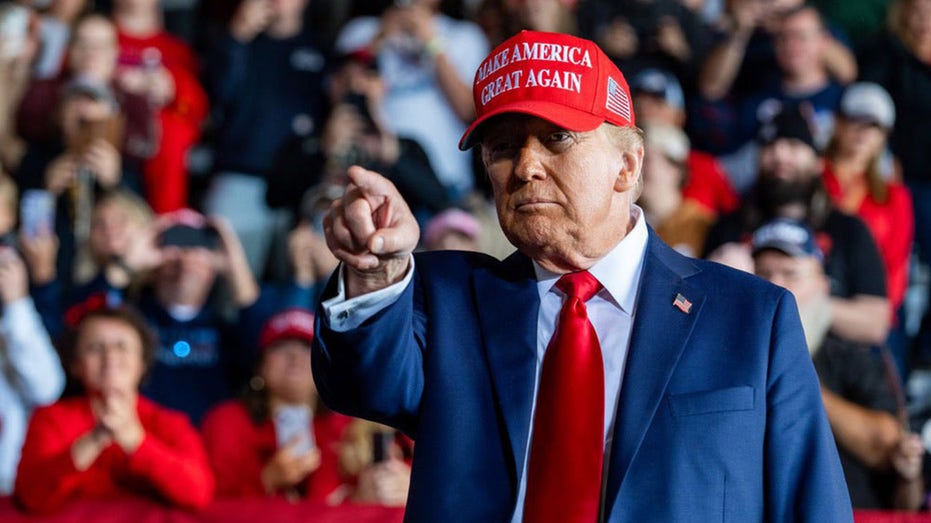
President-elect Donald Trump wants to expand the federal death penalty and undo the Biden-Harris administration’s moratorium on capital punishment.
President-elect Donald Trump put federal death row inmates on notice this campaign season, when he warned he would undo a moratorium on executions slapped in place under the outgoing Biden-Harris administration.
“President-elect Trump has not shied away from using the death penalty,” said Matt Mangino, a former district attorney for Lawrence County, Pennsylvania, and an expert on capital punishment. “He presided over 13 executions in the final year of his first term.”
However, the incoming president also says he wants to expand capital punishment for other crimes, putting execution on the table for child rapists, human traffickers and illegal immigrants who kill Americans or police officers.
That would require support from Congress and the Supreme Court.
TRUMP VOWS TO CREATE COMPENSATION FUND FOR VICTIMS OF ILLEGAL IMMIGRANT CRIME
Some of those ideas face hurdles. In 2008, the Supreme Court declared the death penalty for child rapists unconstitutional when the child survives, the American Bar Journal reported Monday.
However, with Trump in the White House, a Republican majority in the Senate and conservatives holding a 6-3 advantage in the current Supreme Court, proponents are hopeful for a reversal.
ALABAMA DEATH ROW INMATE EXECUTED WITH NITROGEN GAS, NATION’S FIRST BY A NEW METHOD IN 42 YEARS
WATCH: Trump says the only way to stop drugs is the death penalty for dealers
“The Supreme Court has said the death penalty should only apply when the death of the victim is involved, but that is subject to change with the makeup of the current Supreme Court,” Mangino told Fox News Digital.
Three of the four justices who dissented in the 2008 Kennedy v. Louisiana decision are still on the court – Justices John Roberts, Clarence Thomas and Samuel Alito.
It would also be a groundbreaking move to impose the death penalty on people convicted of drug or human trafficking, Mangino said.
“The death penalty for drug and human trafficking would be unprecedented in the western world,” he said.
Rodrigo Duterte, the former president of the Philippines, prompted an international outcry after a violent war on drugs in his Southeast Asian country, he noted.
The American Civil Liberties Union (ACLU) has vowed to fight efforts to expand the death penalty.
In July, the organization noted that in the 1980s, Trump paid for a full-page ad calling for the execution of the “Central Park Five” – who were convicted of rape and assault for an attack in the park. New York state had no law authorizing the death penalty for rape cases at the time and banned capital punishment altogether in 2004.
More than a decade after their wrongful convictions, all five were exonerated by DNA evidence. One of them, Yusef Salaam, is currently a New York City councilman.
There are currently 40 federal inmates on death row, according to the Death Penalty Information Center, and the list includes surviving Boston Marathon bomber Dzhokhar Tsarnaev and Dylann Roof, who massacred nine parishioners in a South Carolina church.
Justice Department records show the federal government has executed 16 people since 2001, with the deaths of Oklahoma City bomber Timothy McVeigh and, eight days later, the American drug trafficker Juan Raul Garza, who had two men killed and executed a third himself.
Thirteen of those executions came during Trump’s first term in office.
The individual states executed 1,542 condemned inmates between 1977 and 2022, according to federal data. Texas led the way with 587 executions, more than the next two states combined – Oklahoma with 119 and Virginia with 113.
In almost that same time period – between 1973 and 2023 – 192 death row inmates were exonerated and set free, according to the ACLU.
The individual states have their own system for capital punishment – or lack thereof – and would not be as impacted by Trump administration policy.
“Trump will have a GOP Senate and most likely a GOP House,” Mangino said. “He can do a lot with the death penalty and only the Supreme Court can put on the brakes – and how likely is that?”